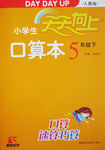题目内容
【题目】Papa, as a son of a dirt-poor farmer, left school early and went to work in a factory, for education was for the rich then. So, the world became his school. With great interest, he read everything he could lay his hands on, listened to the town elders and learned about the world beyond his tiny hometown. "There's so much to learn," he'd say. "Though we're born stupid, only the stupid remain that way. "He was determined that none of his children would be denied (拒绝) an education.
Thus, Papa insisted that we learn at least one new thing each day. Though, as children, we thought this was crazy, it would never have occurred to us to deny Papa a request. And dinner time seemed perfect for sharing what we had learned. We would talk about the news of the day; no matter how insignificant, it was never taken lightly. Papa would listen carefully and was ready with some comment, always to the point.
Then came the moment—the time to share the day's new learning.
Papa, at the head of the table, would push back his chair and pour a glass of red wine, ready to listen.
"Felice," he'd say, "tell me what you learned today."
"I learned that the population of Nepal is ...."
Silence.
Papa was thinking about what was said, as if the salvation of the world would depend upon it. "The population of Nepal. Hmm. Well ..." he'd say. "Get the map; let's see where Nepal is. " And the whole family went on a search for Nepal.
This same experience was repeated until each family member had a turn. Dinner ended only after we had a clear understanding of at least half a dozen such facts.
As children, we thought very little about these educational wonders. Our family, however, was growing together, sharing experiences and participating in one another's education. And by looking at us, listening to us, respecting our input, affirming our value, giving us a sense of dignity, Papa was unquestionably our most influential teacher.
Later during my training as a future teacher I studied with some of the most famous educators. They were imparting what Papa had known all along—the value of continual learning. His technique has served me well all my life. Not a single day has been wasted, though I can never tell when knowing the population of Nepal might prove useful.
【1】What do we know from the first paragraph?
A. The author's father was born in a worker's family.
B. Those born stupid could not change their life.
C. The town elders wanted to learn about the world.
D. The poor could hardly afford school education.
【2】The underlined word "it" in the second paragraph refers to "________".
A. one new thingB. a requestC. the newsD. some comment
【3】It can be learned from the passage that the author ________.
A. enjoyed talking about news
B. knew very well about Nepal
C. felt regret about those wasted days
D. appreciated his father's educational technique
【答案】
【1】D
【2】C
【3】D
【解析】
试题分析:考查记叙文阅读。本文是一篇记叙文,通过对父亲的教育方式的描写,表达了作者对于父亲的敬爱。
【1】D 细节理解题。根据第一段中Papa, as a son of a dirt-poor farmer, left school early and went to work in a factory, for education was for the rich then.可知,爸爸生长在一个贫穷的家庭,根本付不起学费,故选D。
【2】C 推理判断题。这里的it代指的是前面提到的news,代指前面的主语。故选C。
【3】D 细节理解题。根据最后一段前两句Later during my training as a future teacher studied with some of the most famous educators. They were imparting what Papa had known all along...可知,在我成为未来教师的实习中,我和一些很有名的教育者一同学习,他们传授着父亲所知道的——持续教育的意义。故选D。
【名师点拨】
细节理解题中的干扰项也是以文章中的某个细节设题,若不仔细辨别,很容易把它当成正确选项。干扰项有以下特征:
1、将原文内容扩大或缩小。把原文中的限定词去掉或替换,使该选项看似正确,实际上却是错误选项。
2、把未然当已然。改变文中某句话的时态,如把将来时变成现在时,把未发生的事情当成已发生的事情。
3、无中生有。即选项内容是根据主观想象或推测得出的结论,而文中并未涉及。
4、偷换概念。把原来做该事的“张三”换成“李四”,所述细节确实与原文一致,一不小心就会误选。
5、文不对题。这类题最不容易辨别,选项中的描述与原文完全一致,确属原文中的一个细节,这时要回到题干,看该选项是否能回答题干所提的问题。
【1】D细节理解题。根据第一段第一句最后半句,for education was for the rich then. So, the world became his school.因为教育是对有钱人开放的,所以世界成了爸爸的学校。可以推断出作为一个穷人的爸爸付不起学费,故选D

 天天向上口算本系列答案
天天向上口算本系列答案